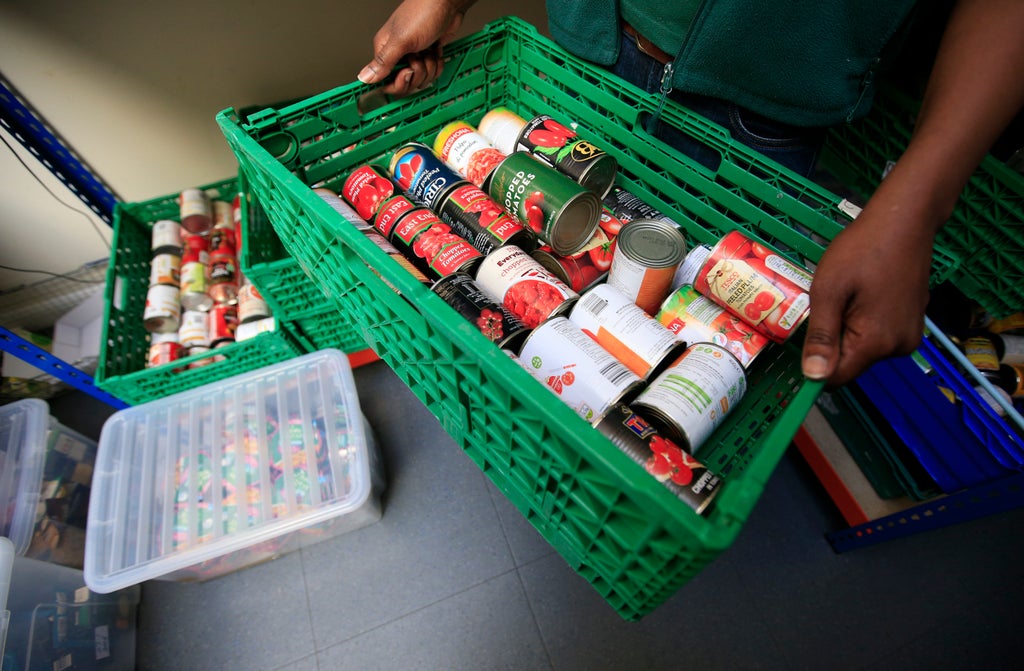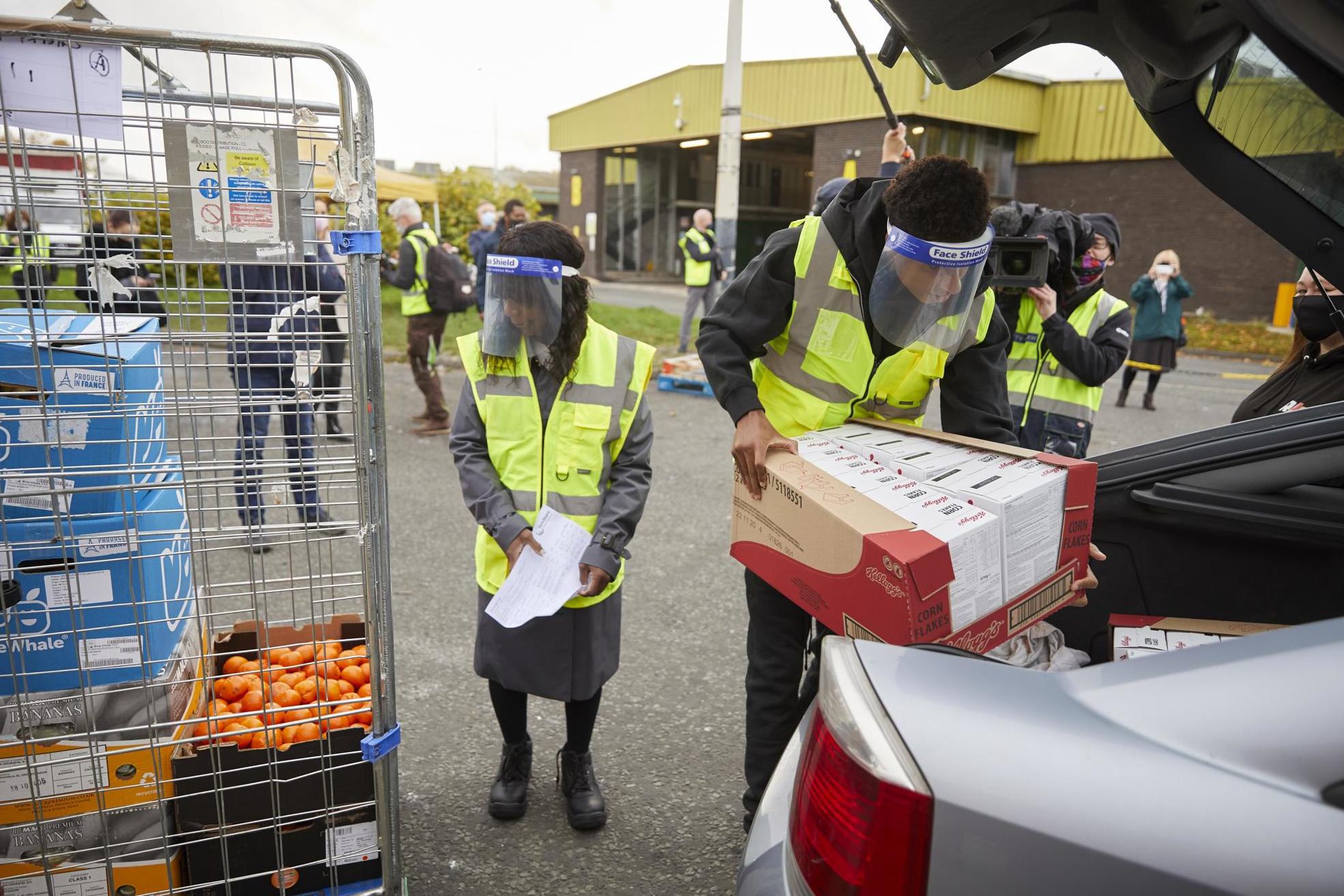
Food charities have warned that they are struggling to keep up with demand as new figures show that more than four in 10 Britons have cut back on groceries due to rocketing prices.
A poll by the Office for National Statistics found that 92 per cent of people reported an increase in the price of their food shopping, with 41 per cent saying they had cut back as a result.
The troubling findings are the latest indication that Britain's cost of living crisis is beginning to bite.
It came as former Sainsbury’s boss Justin King warned that a “golden era” of cheap food in the UK was over and shoppers would have to expect higher prices while “adjusting how they prioritise their budgets”.
Mr King argued that supermarkets could do little to help people by lowering prices because their margins were already low.
Big retailers have been under pressure to keep prices low after announcing strong financial results while many of their customers struggle to make ends meet.
Mr Rose told the BBC’s Today programme: “I think we have perhaps been through a golden era.”
He highlighted that, on average, households spend less of their budgets on food, although he conceded that low-income families had limited ability to deal with rising prices.
FareShare, which distributes food to frontline charities, urged supermarkets to give more food donations to help keep up.
Chief executive Lindsay Boswell said demand for food is “as high as it’s ever been”, with 90 per cent of charities reporting increased need.

Sabine Goodwin, coordinator of the Independent Food Aid Network warned that demand for food aid was increasing at such “an alarming rate” that providers were struggling to keep up.
“Britain’s food insecurity crisis is worsening by the day and its long-term impact will be devastating,” Ms Goodwin said.
“At the very least, benefit payments must be uprated in line with inflation and cash-first interventions prioritised.”
Feeding Britain reported demand had increased by at least 30 per cent at its food clubs in the past six months, with some centres seeing a 100 per cent jump.
“The frequency with which people need our service and the amount of food they need has risen,” said Feeding Britain’s national director, Andrew Forsey.
Despite increasingly desperate pleas from campaigners, the chancellor has yet to announce further financial support for struggling households.
Rishi Sunak said on Friday that he had been powerless to increase benefit payments for struggling families because of an antiquated government IT system – a claim that is disputed by critics.
According to Give Food, a charity that runs a database of food banks, requests from charities for food are up 24 per cent in the last month alone.
“The number of items food banks need donating is the same volume as we would normally expect in the run-up to the winter peak, but it’s still only the spring,” said Jason Cartwright, Give Food’s founder.
Batley food bank in West Yorkshire is among those working hard to keep up. It has launched a campaign for donations after reporting it was dealing with an “unprecedented” number of service users.
Nina Parmar, a manager at Sufra food bank in Brent, northwest London, reported a big increase in the number of people coming in for the first time.
“Over the past month and a half we’ve seen a sharp increase in the number of guests, as well as a sharp increase in the anxiety people are feeling about their bills, particularly energy.”
“Food poverty isn’t something that happens in a silo. If people come to us it is because they’ve already had to compromise, to make a decision on whether to put fuel in their car to go to work, or to top up their energy meter.”
Rising rents were also becoming a major problem in the area because landlords are seeking to pass on their increased costs to tenants, Ms Parmar said.
Some food banks are preparing to take on new staff to keep up with rising demand. Teresa Williams, a coordinator at Chipping Barnet food bank said the organisation was looking for its first paid manager after a “huge increase” in numbers.
Nationwide food aid charity, the Trussell Trust, reported it had handed out 2.1 million parcels last year. Numbers in January and February this year were 22 per cent higher than in the same months in 2020, before the pandemic.
The new ONS figures show that around 88 per cent of adults have reported a rise in their cost of living over the past month.
Around 85 per cent of Britons surveyed also highlighted increases in gas and electricity bills, with 79 per cent saying fuel was more expensive over the period.
Almost six in 10 people – 58 per cent – said they were most worried about the high cost of gas and electricity bills.
Bills are set to rise sharply again in October when Ofgem’s price cap is reviewed. Food prices are also expected to increase further as producers pass on the cost of higher energy, fuel, transport and labour.
Food price inflation hit 5.9 per cent in March, almost twice the rate that state benefit payments have risen this year.







